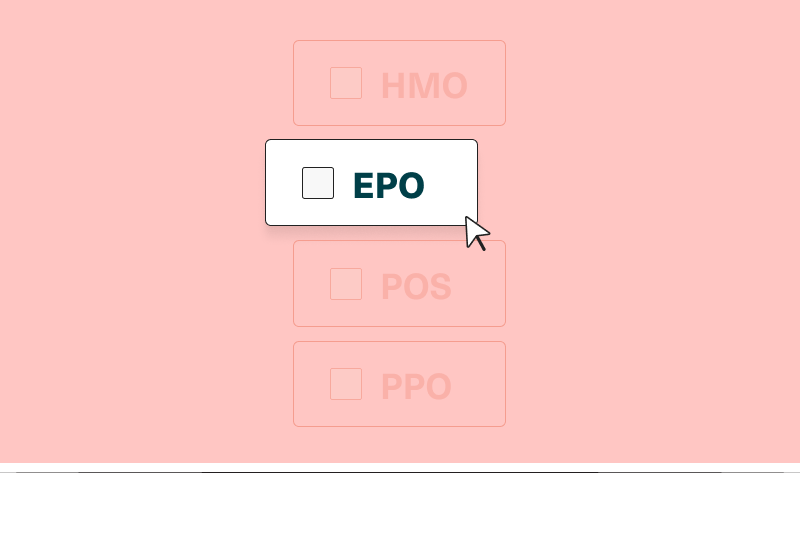Health insurance requirements for small businesses

Why is reviewing small business health insurance requirements necessary?
If you choose employee coverage for the first time or want to switch carriers to improve the benefits you offer, learning about standard small business health insurance requirements may be helpful.
Providing attractive health plans is one of the most critical human resource challenges you may face as a small business owner or entrepreneur. But getting this right will allow you to provide one of the more valued benefits for your employees.
When trying to find new employees, benefits can be a highly successful recruitment tool. You can differentiate yourself from other companies by providing detailed information about health plans before the onboarding process even starts.
A recent report by Group Risk Development (a UK-based industry association for life and disability insurance benefits) stated, “Just 22 percent of organizations promote employee benefits during recruitment, such as in job advertisements, and only 25 percent include any mention of employee benefits before day one of employment, such as in an offer letter.”
However, good medical, dental, and vision benefits have numerous advantages for companies of all sizes, including more successful recruiting, retaining, and developing processes for their employees. Therefore, learning about small business health insurance requirements will let you choose the best coverage to make you more competitive as an employer.
Related: What to expect in a small business health insurance quote
Are all small businesses required by law to offer health insurance?
Before answering this question with a “yes” or “no,” here is information from HealthCare.gov to help you understand small business health insurance requirements.
- In 2010, a comprehensive health care reform law called the Affordable Care Act (ACA, PPACA, or “Obamacare”) implemented reforms to achieve three main goals:
- Make affordable health insurance available to more people.
- Expand the Medicaid program to cover all adults with income below 138% of the federal poverty level (FPL).
- Support innovative medical care delivery methods designed to lower the costs of healthcare
- Although small businesses (1–50 full-time and full-time equivalent employees) do not have to offer health insurance to their employees under the ACA, it provides the Small Business Health Options Program (SHOP) for such small employers. These plans can cover health and dental care.
- Businesses with more than 50 employees are required to provide health insurance coverage to their full-time equivalent employees. Failing to do so means they will have to pay a no-coverage penalty to the Internal Revenue Service (IRS).
In brief, if your company has 1 to 50 full-time employees, you do not have to provide them with health insurance.
However, offering coverage will make you a more attractive employer and help you become a better leader in the long run.
Related: 5 types of group health insurance plans for small businesses
What are other common health insurance requirements for small businesses?
Besides SHOP, there are several coverage options, and not all of them are designed specifically for small businesses. You may find anything from expensive fully-funded plans offered by traditional, large carriers to more modern and agile self-funded plans.
Self-funded health insurance is becoming increasingly popular among small companies. So much so that 67% of covered employees prefer policies where the employer assumes the risk but has greater flexibility and control.
Level-funding is an especially advantageous self-funding option for small businesses since it limits their health care spending. In case of high claims, stop-loss insurance kicks in to cover costs, minimizing the company’s risk. On the other hand, in low claim situations, the employer receives a rebate or a credit.
Consider the following small business health insurance requirements:
Company size and location
If you’re a startup or small business with an overall healthy workforce, self-funded plans may be a more affordable and attractive option for you. However, acquiring these types of plans will depend on your company’s location because different states have different insurance regulations. In level-funded plans, your location affects your plan selection and related costs. Level-funding is available in some states to companies as small as five employees, whereas other states require a minimum of 25 or 50 employees to qualify.
States also have varying levels of taxes on health insurance premiums. In essence, self-funded plans don’t have to pay certain federal and state taxes, and they may save your company between 2% and 6% on gross premium taxes, depending on your state.
Employees’ health history
If your company is already enrolled with a traditional health insurance carrier, you may be used to the heavy paperwork they require you and your employees to fill out before you are even able to obtain a quote. These forms often include complex health questionnaires and even files related to your employee’s previous insurance claims history.
To gather more detailed information about your employees’ treatment for specific illnesses and conditions, fully-funded insurers could additionally examine medical records or prescription drug databases for all applicants.
In contrast, modern insurance providers have a streamlined quote request procedure, so you initially only need to include basic information, such as name, contact information, email address, employee number, and phone number. Then, you should complete a simple employee census to obtain a quote. This census includes the names, ages, gender, and ZIP code of all employees. There is no requirement for filling out complex medical questionnaires.
Budget
Health insurance is one of the most significant expenses for businesses, but it is an investment you are making in your company’s future. Keeping this in mind will help you determine how much you should budget for employee health care and which plan to choose.
The market typically offers fully-funded plans that can be more expensive and less flexible for small businesses. In general, traditional carriers increase their rates annually without notifying employers or providing them with an explanation for the increase. In these cases, budgeting can be a difficult task without prior knowledge of rate hikes.
On the other hand, level-funded plans are becoming more popular among small business owners because you get to pay for what you use while having more financial predictability since there is a cap on your costs. Also, due to reduced taxes, administrative fees, and underwriting costs, self-funded and level-funded insurance plans are generally less expensive than fully insured plans.
Health insurance status
You can change your health insurance plan at any time if you are dissatisfied with your existing carrier. There is no requirement for you to stay for the entire year.
It is best to set up your new insurance provider beforehand, so you’re not disrupting health coverage for your employees. If you are switching health insurance companies, you may want to consider a self-funded or level-funded plan, as they are more affordable and innovative than traditional fully-funded health plans.
Review these items carefully to navigate the insurance market more efficiently and determine which carriers are the best fit for your company. It can take thorough research to find the right insurer match but knowing your options can lead to a healthier and happier work environment.
Are you looking to obtain the richest and most affordable health plans for your employees? Sana will design the best options to fit your unique small business needs. Get a quote now.






